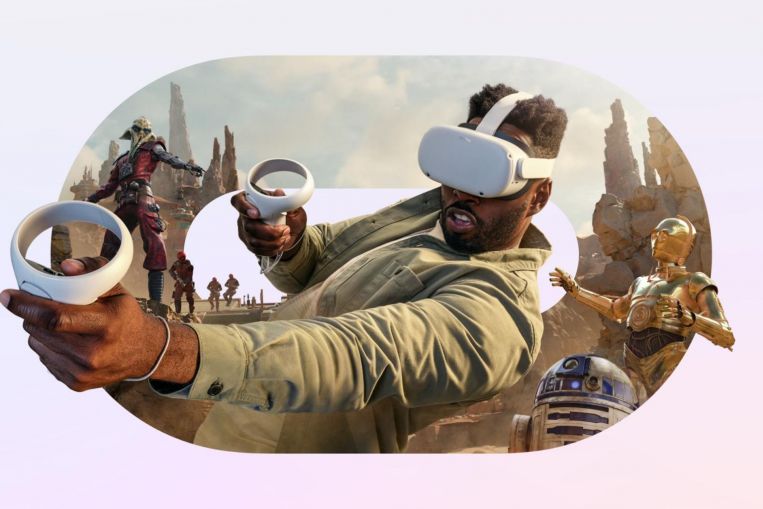MENLO PARK (BLOOMBERG) – Facebook plans to start showing advertisements in virtual reality games on its Oculus Quest headset, a push toward turning the expensive hardware business into a moneymaker for the social network.
For now, the move is a test. In the next few weeks Facebook will run ads in Blaston, a futuristic shootout game from Resolution Games, and programs from a couple other developers, according to a company blog post Wednesday (June 16).
Gaming companies will earn a portion of the revenue generated by the advertising, a Facebook spokesman said, but did not disclose their share.
Last month, Facebook said it would start testing advertisements for Oculus content in the VR-gaming unit’s mobile app.
Advertising will help the social media giant return more of its significant investment in hardware, as it keeps prices of virtual reality headsets low to encourage faster consumer adoption. Within virtual reality, which requires a headset that blocks out the real world, it will be easier to guarantee someone sees an ad.
Facebook Chief Executive Officer Mark Zuckerberg sees virtual and augmented reality-powered devices as the next big platform for human communication, after mobile phones, eventually replacing some in-person social interactions.
Facebook will soon face significant competition when Apple releases a rival VR device. Both companies are also developing their own augmented reality glasses.
Oculus leaders for years resisted putting Facebook branding prominently on their products, fearing a backlash from gamers. But starting last year, the parent company started requiring new users of Oculus headsets to have Facebook accounts.
The company has said it uses information about activity on Oculus, such as which games and apps they use, to bolster its targeted advertising business across its various products and platforms.
Oculus, the social network’s hardware division, announced last year the release of Quest 2, an all-in-one virtual reality headset with a faster processor for improved gaming and higher-resolution screens than its predecessor.
The entry-level model with 64GB of storage costs US$299 (S$402), making it more affordable than others.
Mr Zuckerberg, who regularly extols the future prospects of virtual and augmented reality, said in April that he was pleased with the sales.
Facebook’s “other” revenue category, which includes products outside of advertising such as hardware sales, more than doubled to US$732 million in the first quarter of 2021.













































